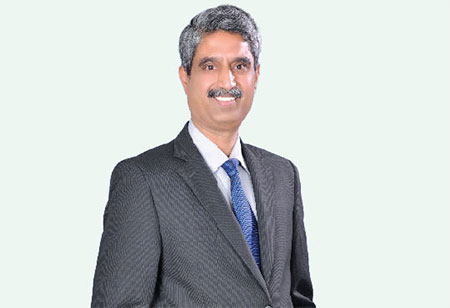Role of Consultants in Sunrise Sectors
By D C Sekhar, Managing director,
AlphaMERS

D C Sekhar, Managing director, AlphaMERS
Consultancies in sunrise sectors have few challenges. The underlying domain has not happened yet. It is not a proven revenue model in this geography and therefore the momentum to develop new projects does not exist. Few technical models available worldwide cannot be ‘cut and pasted’ here. The consultant ends up not just selling his own capabilities, but selling the attractiveness of the entire sector. One such area that immediately comes to my mind is the development of integrated logistics and waterfront tourism destination projects.
This is a sector with limited knowledge from secondary sources for developmental parameters. The main resource, being the waters, is a public resource. There is also a large cost to obtaining primary information on these resources. It may be stated here that while the studies are expensive, the revenue model may not be necessarily very large or robust. The feasibility exercise of such projects is thus expensive and this is a strong deterrent to fresh genuine interest. Compound this with the fact that the knowledge gained from the studies is very site-specific. Why would anyone engage an expensive feasibility study without assurance of being allotted the specific site, or would he contract the site first without knowing the feasibility? Swiss challenge models of PPP were made for such situations, but that is not happening, well, at least not in India.
This is one of those specialized domains where practical experience of the consultant really matters. You cannot learn cycling from the books, even if Google describes the parts of the cycle very well. A generalist consulting firm, even if this is a big firm, cannot connect the dots well. The dots are the technical issues like geophysical and geotechnical features, the development options, connectivity, pricing, brand positioning, safety issues, environmental issues,the service model, revenue model and financial sensitivity. The synergy within the core team of a consulting organization brings out the best combination from the above, in line with the promoters’ own profile and wish list.
The revenue potential may not always support hiring a large consulting firm. Sometimes a boutique consulting firm with the right DNA can do a better job. Exploring the various techno commercial models with a smaller expert group lowers the risk and multiplies the options at lower consultancy costs. Such a consultant is also confident of providing very specific advice with conviction and logic, without falling into the trap of bulky reports and vague generalizations.
If you plan to make a career as a swimming coach, it helps immensely if you know swimming well. Likewise, it is advisable to get some good traction in this sector before setting out as a consultant. Traction in some of these skillsets is rare. Traction running across various skillsets is even harder to come by. Thus, a few people who can understand and connect the dots of these various functions can look forward to a great demand. Most of such people are themselves entrepreneurs and project developers, with diminished interest in consultancy revenues.
It helps if the consultant clearly states the investment risk in conducting feasibility studies. One of the real results of a feasibility study can be an unfeasible project. No one can look at the waters and predict what lies under the surface, deep waters or shallow rocky bottom. This needs a study and studies cost money with good reason.
The consultant should be able to paint the picture of a waterfront tourism destination to a client, where only a tranquil natural lake exists now. He should be able to visualize the technical options, understand the consumer psyche, price sensitivity, revenue potential and arrive at a justifiable capex. It is the same consultant who must also be able to see the opportunities to harness renewable energy from the elements of the waters, chalk out the required site-specific environmental standards and practices going beyond regulatory minimums, if necessary. There is much happening around the world in these sectors, ranging from underwater restaurants to underwater hotels, ground effect crafts, tourist submarines, cable skiing, crystal lagoons and so on. It is the consultant’s responsibility to educate the client on the latest developments.
Lastly, the consultant, as in any other field, must resist the temptation to create an expensive masterpiece which has little relevance to the revenue potential of the specific geography and client demographics.




